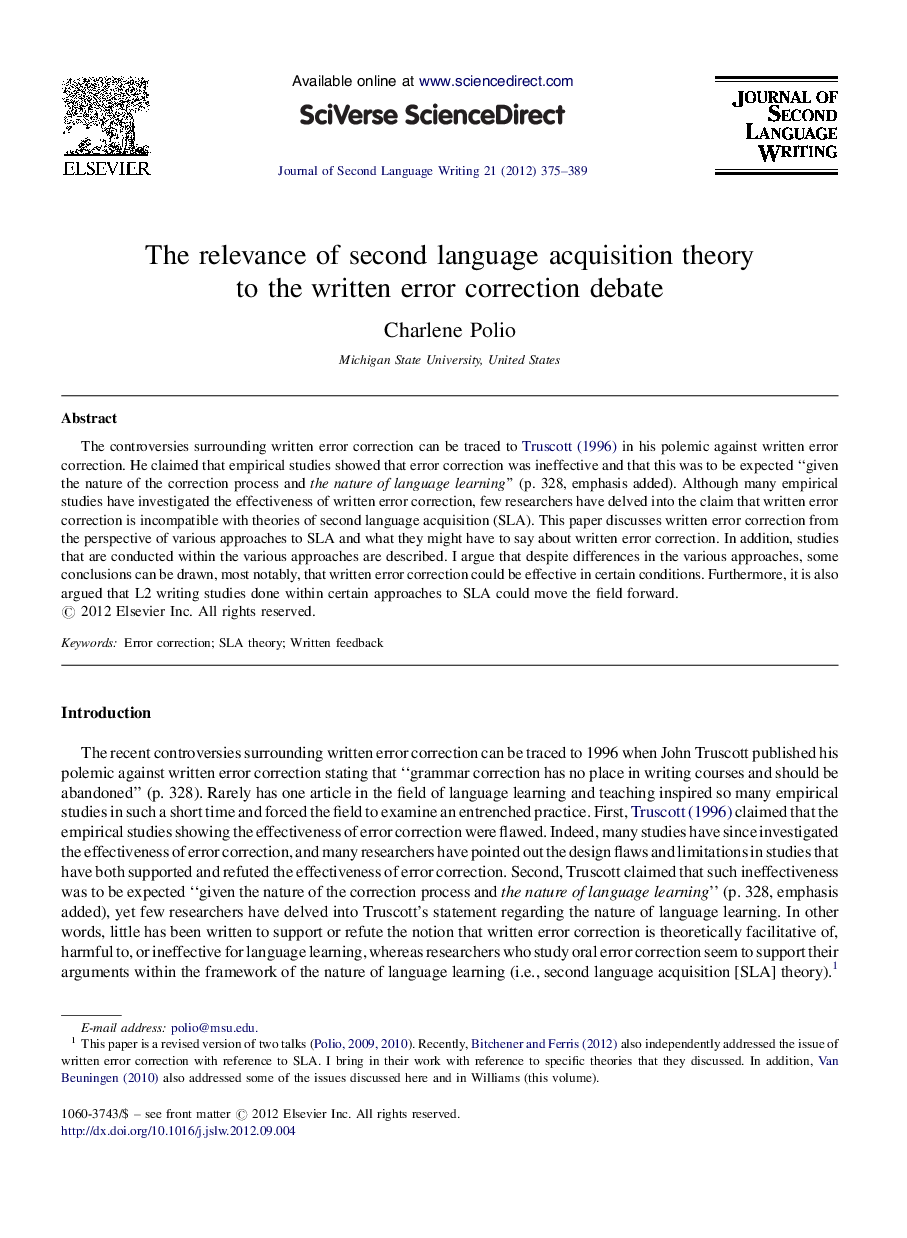| Article ID | Journal | Published Year | Pages | File Type |
|---|---|---|---|---|
| 364127 | Journal of Second Language Writing | 2012 | 15 Pages |
The controversies surrounding written error correction can be traced to Truscott (1996) in his polemic against written error correction. He claimed that empirical studies showed that error correction was ineffective and that this was to be expected “given the nature of the correction process and the nature of language learning” (p. 328, emphasis added). Although many empirical studies have investigated the effectiveness of written error correction, few researchers have delved into the claim that written error correction is incompatible with theories of second language acquisition (SLA). This paper discusses written error correction from the perspective of various approaches to SLA and what they might have to say about written error correction. In addition, studies that are conducted within the various approaches are described. I argue that despite differences in the various approaches, some conclusions can be drawn, most notably, that written error correction could be effective in certain conditions. Furthermore, it is also argued that L2 writing studies done within certain approaches to SLA could move the field forward.
► The written error correction controversy is examined from the perspective of different theories of SLA. ► Despite differences in the various approaches, we can conclude that written error correction could be effective in certain conditions. ► Second language writing studies done within certain approaches to SLA could move the field forward.
